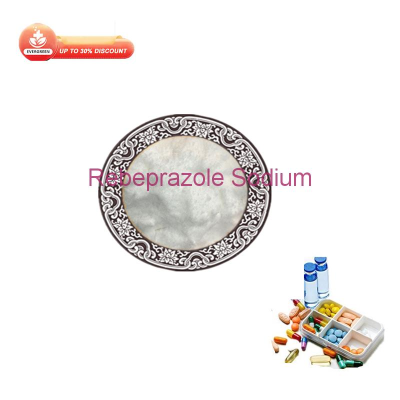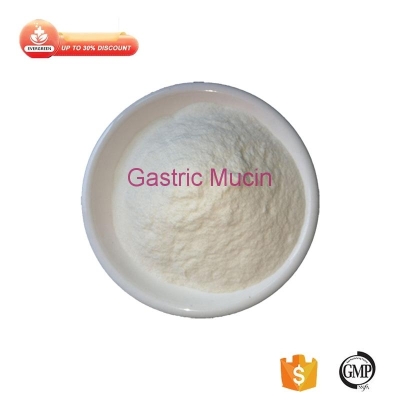-
Categories
-
Pharmaceutical Intermediates
-
Active Pharmaceutical Ingredients
-
Food Additives
- Industrial Coatings
- Agrochemicals
- Dyes and Pigments
- Surfactant
- Flavors and Fragrances
- Chemical Reagents
- Catalyst and Auxiliary
- Natural Products
- Inorganic Chemistry
-
Organic Chemistry
-
Biochemical Engineering
- Analytical Chemistry
- Cosmetic Ingredient
-
Pharmaceutical Intermediates
Promotion
ECHEMI Mall
Wholesale
Weekly Price
Exhibition
News
-
Trade Service
For patients with rectal cancer, complete pathological response (pCR) after neoadjuvant chemoradiotherapy can be used as a predictor of reduced local recurrence rate and improved disease-free survival rate (DFS), and strengthening neoadjuvant therapy for rectal cancer can improve the patient's pCR rate and benefit the patient's organ and function preservation
.
At present, chemoradiotherapy is the standard regimen for neoadjuvant therapy for patients with rectal cancer, but the pCR rate of radiotherapy and chemotherapy alone does not fully meet the needs of
patients.
Based on this, a Phase II single-arm study evaluated the efficacy and safety of galunisertib combined with neoadjuvant chemoradiotherapy in patients with locally advanced rectal cancer, and the results were published in Lancet Oncology (IF:54.
433).
Research background
The immune microenvironment can affect the efficacy of anti-tumor therapy, and previous studies have shown that rectal cancer with a large number of invasive CD3+ and CD8+ T cells has a higher
response rate to neoadjuvant chemoradiotherapy.
TGF-β is an immunosuppressive cytokine that reduces the proliferation and effector function
of CD8+ T cells.
galunisertib is a TGF-β-type I receptor small molecule inhibitor that can improve radiotherapy efficacy and improve overall patient survival (OS)
by increasing the number of tumor-infiltrating CD8+ T cells and enhancing the lethality of CD8+ T cells.
Based on this, the researchers designed this one-arm experiment to assess whether the addition of TGF-β inhibitors to neoadjuvant chemoradiotherapy can improve pCR rates
in patients with locally advanced rectal cancer.
Research Methods
This is a single-arm, phase II study initiated by investigators involving patients
over 18 years of age, with an ECOG status score of 0-2, untreated stage IIA-IIIC, or surgically resectable stage IV primary rectal adenocarcinoma.
The patient received oral galunisertib 150 mg bid for a total of 14 days, followed by chemoradiation with a chemotherapy regimen of 5-FU infusion or oral capecitabine at a radiotherapy dose of 50.
4-54.
0 Gy
.
On day 30, the patient begins another cycle (14 days) of galunisertib therapy, which is synchronized with ongoing chemoradiation therapy
.
Five to nine weeks after completion of neoadjuvant therapy, the researchers evaluated the efficacy of patients, and patients who did not achieve complete remission (CR) had to undergo total mesenterotomy (TME surgery), and patients who did not receive all neoadjuvant therapy required adjuvant chemotherapy
.
The primary endpoint of the study was the pCR rate, with safety as the common primary endpoint
.
Secondary endpoints included overall survival (OS), progression-free survival (PFS), and peripheral blood immunomodimeter
monitoring.
Results of the study
Between October 19, 2016 and August 31, 2020, the study enrolled a total of 100 patients, and finally 38 patients were included in the study, with a median follow-up of 27.
0 months, and the baseline characteristics of patients are shown in
Table 1.
Table 1 Patient baseline features
A total of 35 patients completed chemoradiotherapy and primary tumor evaluation, of which 25 underwent TME surgery, of which 5 were pCR.
The remaining 10 patients received non-surgical treatment (9 patients were FOLFOX6 regimen and 1 CAPEOX regimen), and 3 of these patients, although they had achieved clinical complete remission (cCR), finally chose TME surgery out of anxiety about non-surgical treatment, and 2 of these 3 patients achieved pCR
.
Of the 7 patients who did not undergo surgery, in the 1 year after the last chemotherapy, 5 achieved cCR and 2 developed local relapse, as shown in
Figure 1.
Figure 1 Tumor remission in patients
An analysis of the safety of the common primary endpoints was shown in Table 2, with the most common grade 3 adverse events being diarrhoea (16%) and hematologic toxicity (18%)
.
Grade 4 adverse events occurred in 2 patients, no surgical delay due to adverse events, and no treatment-related deaths
.
Table 2 Treatment-related adverse events
As of the time of final analysis (8 February 2022), patients did not reach median OS and median PFS
.
As shown in Figure 2A, the patient's 2-year OS rate was 97.
4% (95% CI 82.
8%-99.
6%); In Figure 3B, the patient's 2-year PFS rate was 81.
5% (62.
6%-91.
4%)
.
For 34 non-stage IV patients, the patient's 2-year OS rate was 97.
1% and the 2-year PFS rate was 84.
9%.
Figure 2 OS analysis (A) and PFS analysis (B)
Peripheral blood immunomodimeter surveillance analysis found that patients who achieved CR had a decrease in circulating CD3+ CD4-CXCR3+ T cells at day 15 compared to day 1, while patients who did not achieve CR did not see this change
.
In addition, patients who achieved CR had a greater
elevation of tumor invasive CXCR3+ CD8+ T cells on day 15 compared to patients who did not achieve CR.
Conclusion of the study
This study is the first to provide data supporting the use of TGF-β blockers in neoadjuvant therapy for rectal cancer, and patients with locally advanced rectal cancer can increase CR rates to 32% after the combination of galunisertib in neoadjuvant chemoradiotherapy and the regimen is well
tolerated.
Given the benefit of organ retention in neoadjuvant therapy, the investigators suggest that this treatment strategy should be further evaluated in subsequent randomized controlled trials
.
References
Yamazaki T, et al.
Galunisertib plus neoadjuvant chemoradiotherapy in patients with locally advanced rectal cancer: a single-arm, phase 2 trial.
Lancet Oncol.
2022; 23(9):1189-1200.
Reviewer: Traveler
Typesetting: Youshi
Execution: Uni
END






